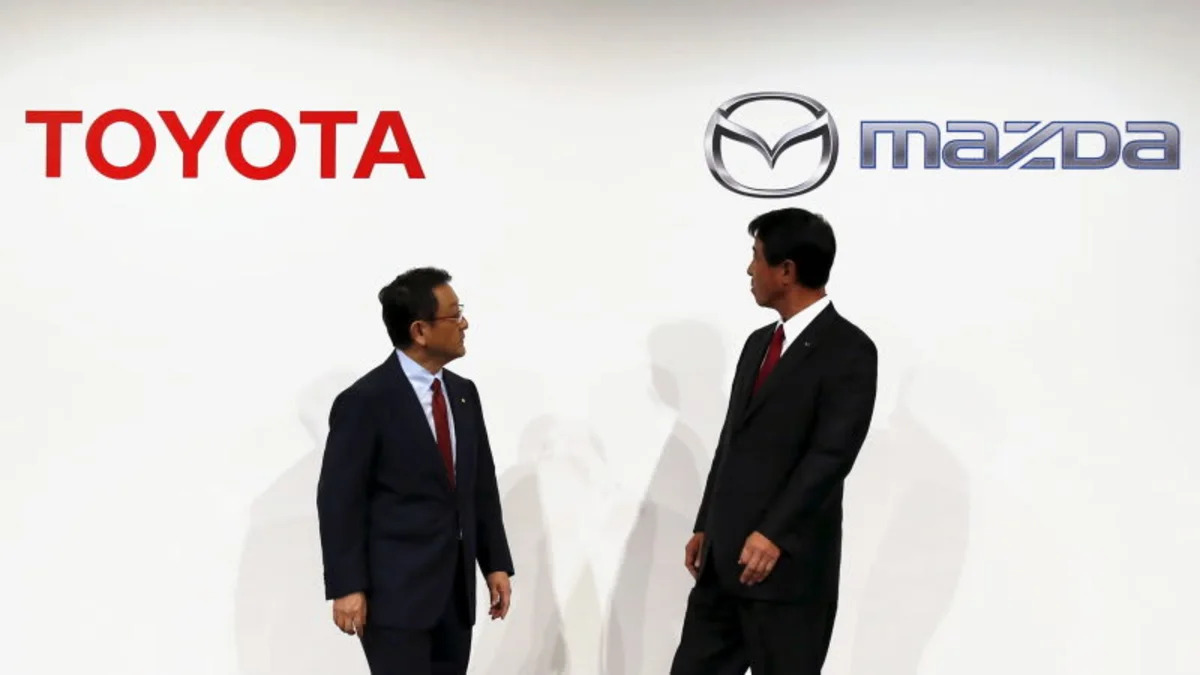Mazda and Toyota are fielding bids from states eager to land its new prize: an all-new $1.6 billion U.S. plant where the Japanese automakers would jointly build electric vehicles and employ around 4,000 workers. Now we can apparently scratch Illinois off the list of contenders.
According to Automotive News, the Land of Lincoln has been disqualified due to a lack of shovel-ready sites and the state's lack of a right-to-work law curtailing union membership. Mark Peterson, the president and CEO of economic development agency Intersect Illinois, told the publication he's been informed Illinois is not among the three or four finalists for the facility. It's believed those finalists are all in the South.
Peterson said that "many national site consultants charged with making recommendations for corporate relocations and expansions will not even consider a state that is not a right-to-work state. In this case, the three states I am told are still in the running are all right-to-work states."
The Midwest may be the ancestral home of U.S. automotive manufacturing, but the South has made major inroads in recent decades, with the likes of Honda, Mercedes-Benz, Nissan and Toyota all opening plants there, among others, thanks to lucrative tax incentives and the absence of labor unions. Recent years have also seen so-called right-to-work laws, which prohibit union dues and membership as a condition of employment in organized workplaces, spread to traditional labor strongholds such as Michigan and Wisconsin.
The new joint venture plant, which would start operating in 2021, would be capable of producing 300,000 vehicles a year, with production divided between the two automakers. Mazda and Toyota would also take small stakes in one another as part of the deal. It's expected that at least 15 states have submitted proposals to attract the plant.
Expect the Illinois news to trigger a new round of debate over the role of organized labor in the modern economy.
Related Video:


Sign in to post
Please sign in to leave a comment.
Continue